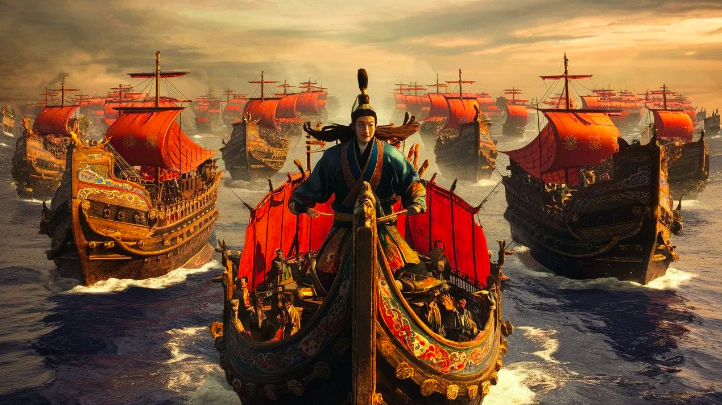
Image sourced from https://rodmartin.substack.com/p/the-cautionary-tale-of-zheng-he-48a
Many people are familiar with important figures from Chinese history, from Mao Zedong and Chiang Kai-Shek to Lottie Moon and Hudson Taylor.
Perhaps they should pay more attention to Zheng He.
Almost a century before Columbus, from 1405 to 1433, China’s Admiral Zheng He led daring voyages of exploration throughout the East Indies, along the South Asian coast, all the way to the Arabian Peninsula and as far as Zanzibar.
He commanded 317 ships and 28,000 crewmen. Columbus’ entire fleet would have fit in the hold of his flagship. He forced nations across half the world to pay tribute to his Emperor, and his treasure ships carried fortunes back to China.
Indeed, China was then the greatest nation on Earth: vast, rich, united, and far more technologically advanced than any possible foe. By contrast, Europe was a backwater, a patchwork of warring fiefdoms, locked in the Spanish Reconquista and the Hundred Years War.
Had Zheng He continued, China would likely have “discovered” medieval Europe, overpowered it and colonized it. Christian civilization would have been subjugated if not extinguished. The New World would have been the New Chinese World. And if you were even alive today, you would probably be a Taoist or a Confucianist, never having even heard the name of the Lord.
But China didn’t continue.
Lacking vision, the Ming emperor and court terminated Zheng He’s voyages. They dismantled his ships and struck virtually all mention of his exploits from the record. Like those at Babel they turned inward: they became convinced not merely of their greatness but of the sufficiency of what they’d already achieved.
Over the next half millennium Europe’s tiny, divided warring states become great nations. They explored and colonized most of the world, taking their faith and beliefs with them. They attained wealth and knowledge far beyond the great advantage China held in 1430. By the end of the 19th Century they’d virtually partitioned China amongst themselves, creating the opportunity Taylor and Moon would never otherwise have had.
Times have changed. Since the 1980s the story has been China’s rise. But China’s failure 600 years ago costs it dearly even today, not only in lost centuries and lost leadership, but in this: a billion Chinese even today are far poorer than the poorest alive in Portugal, Spain, France or England.
Where there was no vision, the people perished.
Read more HERE.
Rod D. Martin serves on the Board of Directors of the Center for Security Policy. He is Founder and CEO of Martin Capital, a technology entrepreneur, investor, and futurist from Destin, Florida. His full bio can be found here: https://rodmartin.substack.com/about
- Military Starship: How SpaceX Is About to Make America Globally Dominant - March 4, 2025
- The Cautionary Tale of Zheng He - December 4, 2024
- Frank Gaffney departs CSP after 36 years - September 27, 2024
